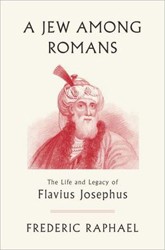History is usually written by writers, not warriors. Of course, there are wellknown exceptions, such as the famed war memoirs of Ulysses S. Grant, or the works of Julius Caesar on his conquest of Gaul. Generally, however, this kind of personal history of war is written by the heroic victor in order to cement his reputation. It is rare indeed to find such a work penned by the loser, a man whose very name is sometimes used as a byword for betrayal, loss, and self-service. Flavius Josephus is that rare man.
Even his name demonstrates his betrayal. A Jewish aristocratic member of a priestly family in Jerusalem during the last days of the Second Temple, he was appointed a General during the revolt against the Romans. After deserting his post and troops a number of times, he is eventually captured by the future emperor Vespasian, whose family name, Flavius, he adopted as his own. He remained on the Flavian payroll for the rest of his life, living in Rome and writing apologia for the Jewish people for the Greek reading public.
With this history, it would be fairly hard to accept what he wrote as accurate or unbiased, but unfortunately, Josephus’ testimony is almost unique from this critical historical period. It was left to him alone to give us much of the details of the reign of Herod and his children, the great revolt, and the beginnings of the exile. While the material is fascinating and important, Seward’s treatment of it is less so. It might serve the reader better to delve into the original material, which in good translation is eminently readable.





